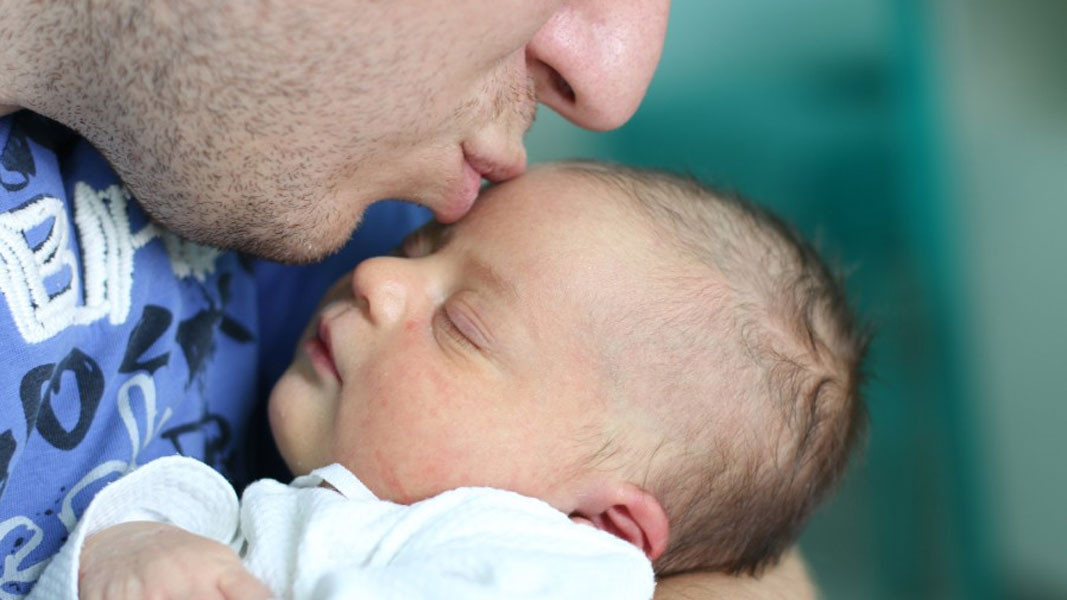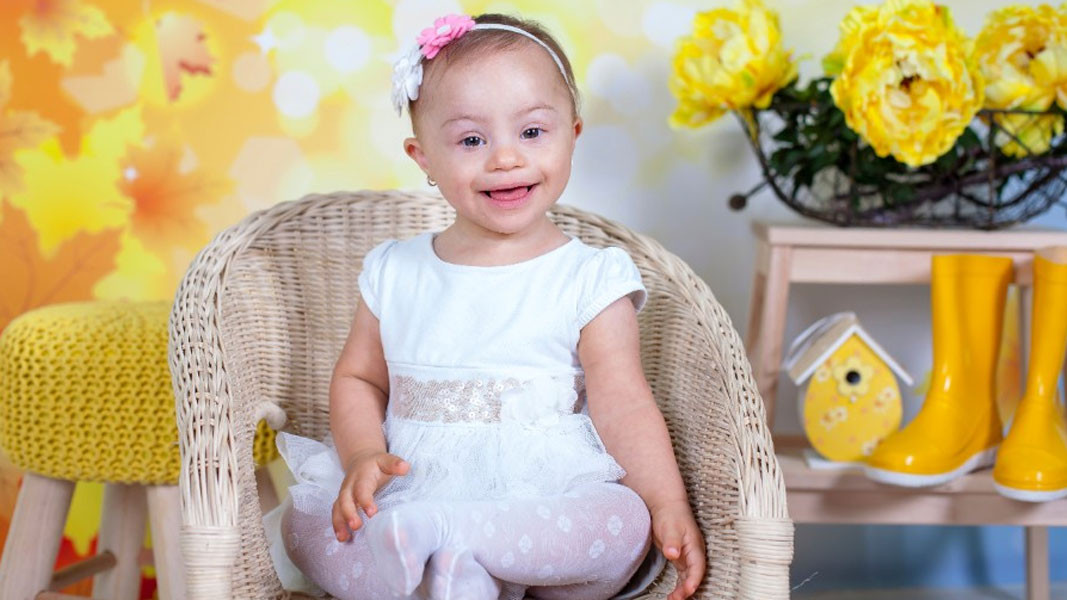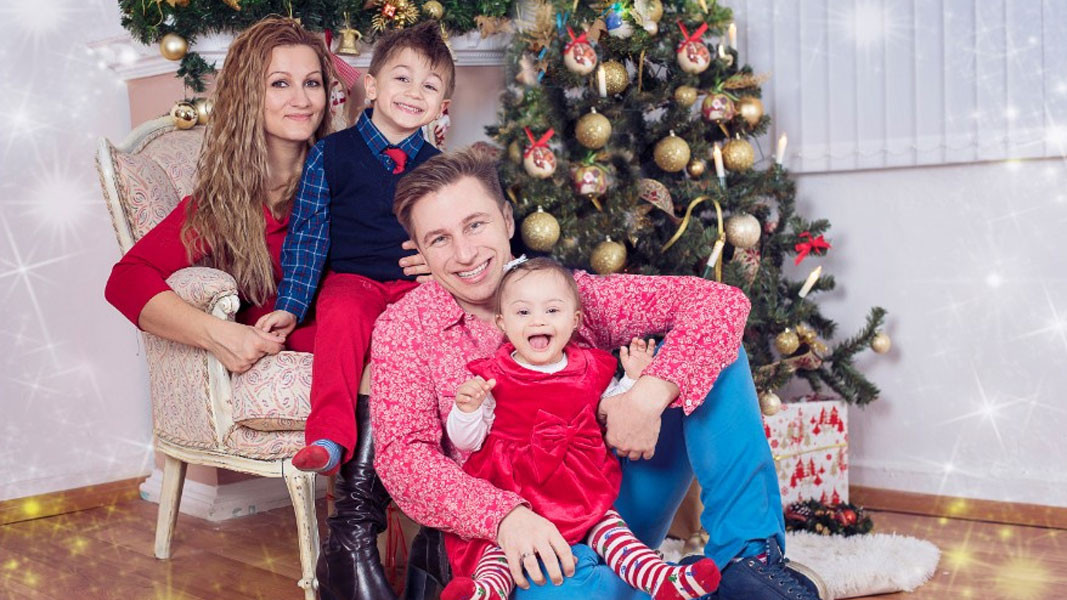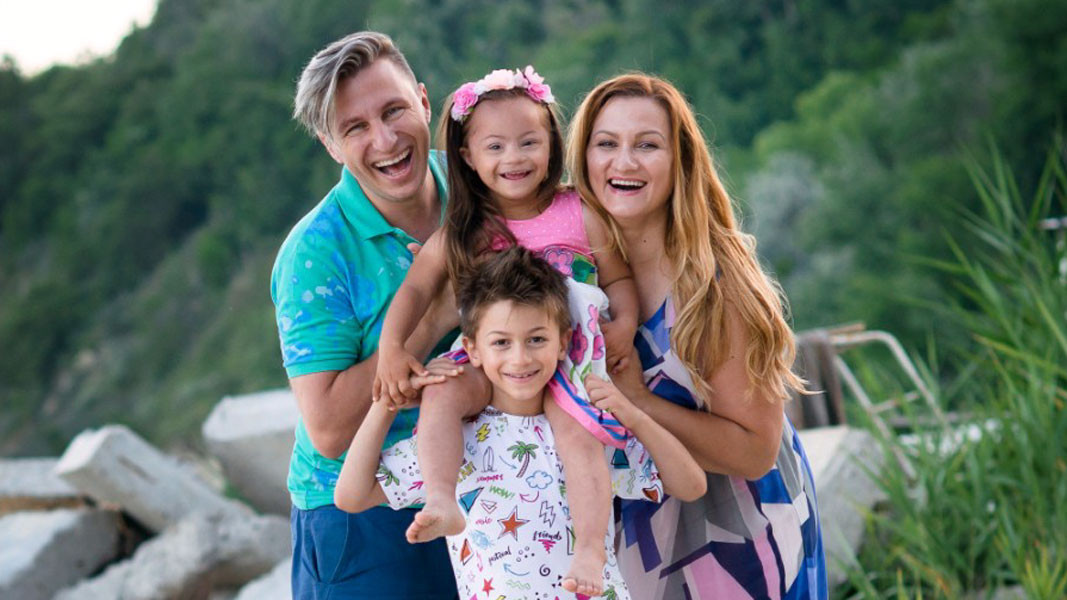At age four Mikaela knows all letters, can recite the alphabet and a poem by Ran Bosilek. According to doctors she should not be able to do any of these things. Mikaela was born with Down syndrome.
When she gave birth to her little girl, Silvena Hristova was given some medical advice – to abandon the baby because it wouldn’t survive very long, society would not accept it and her life would become living hell. When Mikaela came into this world her parents, her grandparents, her relations welcomed her with love. And today she is a loved, wanted and well cared for child.
These are words that are so difficult to hear, Silvena says. It is a situation that comes out of the blue and doctors are supposed to give courage, not tell mothers their children will not survive or will not develop. Those first minutes in the hospital are exceedingly important to any family on hearing such news, and they should be given strong support.

One extra chromosome means so many other “extra” things – effort, solidarity, difficulties, but also “extra” love. For children with Down syndrome to develop they need additional care from birth, because for them every single minute is precious. It is a proven fact that with the earliest intervention – working with specialists, monitoring of the children’s health - they show very high results and can reach an IQ of over 85, Silvena adds. But there is more than one front in this battle for the future – and it is fought so that children will be able to attend regular kindergartens and schools and people will stop turning after them in the street or knocking on wood, doctors will demonstrate tact and empathy and politicians will create conditions so they can survive and develop their full potential.

People with Down syndrome are in urgent need of changes to the legislation. Currently, the Territory Expert Medical Commission or TEMC assigns children up to the age of three a disability rate of 50 percent, which means monthly financial assistance of 350 Leva (EUR 180), and after that age the percentage drops down to 30 or lower depending on the child’s health status. In point of fact the commissions do not follow any clear rules, that is why in different towns children with the same health status are assigned very different disability rates, Silvena comments. Moreover parents have to appear before the commission once every few years so they can never be certain whether in future they will be able to afford going to specialists or the current therapies of their children.

Mikaela goes to a speech therapist twice a week, to music therapy four times a week, and once a week to a rehabilitation therapist, a psychologist, to Zumba exercises and swimming, Silvena Hristova says. So it is not a difficult thing to realize that there is no way the mother can work and take her child to all of these therapies at the same time. And seeing as each one of them costs an average of around 30 Leva it is easy to see that the monthly 350 Leva allocated is nowhere near enough. And on top of all this, there are additional medical tests that have to be done which are not covered by the National Health Insurance Fund and which are very expensive.
But what will happen to a child whose family cannot afford these additional expenses? The children will lag behind because they need rehabilitation every single day and constant work with a speech therapist, says Silvena, and adds that the biggest fear of all parents is that when they are gone one day, their children may find themselves in the street. Because the pension the state allocates per adult with Down syndrome per month is 120 Leva (EUR 61) and if that adult does not have a home no institution can be found to provide a roof over their head.
To raise awareness among the powers that be and to show that having a child with Down syndrome does not necessarily mean suffering in the family, Mikaela’s parents have been making videos to show what her life is like ever since her birth. Their first book “Sun in the family. The adventures of Chris and Mikaela” was released just before Christmas. In the book the story is told by Mikaela’s little brother. And many more stories and adventures lie ahead, they promise.

Photos: lifewithdownsyndrome.com
The Aviation Training Center at Sofia Airport has received accreditation from the Airports Council International (ACI) and joins the elite group of 21 training hubs, including those at leading European airports such as Munich,..
The Museum of the Bulgarian National Revival in Varna presents a collection of 15 authentic folk costumes from the collection of the Historical Museum in the town of Popovo. The valuable costumes are from the regions of Elhovo,..
Deanna Haag was born in Cleveland, Ohio, USA. She grew up dreaming of adventure and new horizons. After graduating from Wittenberg College in Ohio with a degree in Fine Arts, her life took an unexpected turn. The young American stood out for her..
The Aviation Training Center at Sofia Airport has received accreditation from the Airports Council International (ACI) and joins the..
The Museum of the Bulgarian National Revival in Varna presents a collection of 15 authentic folk costumes from the collection of the..

+359 2 9336 661
